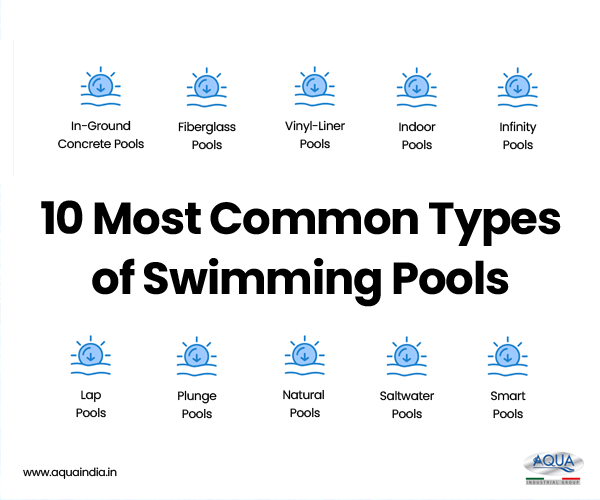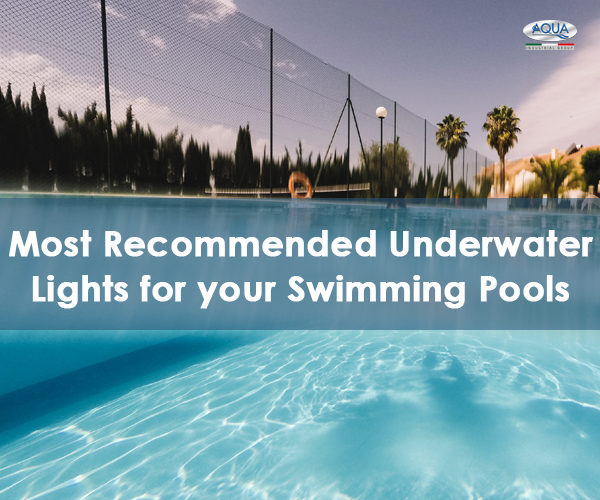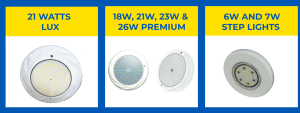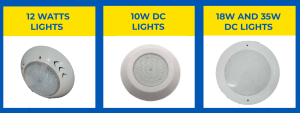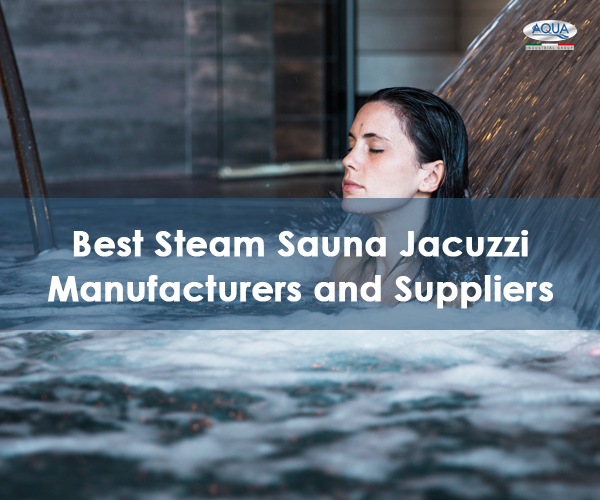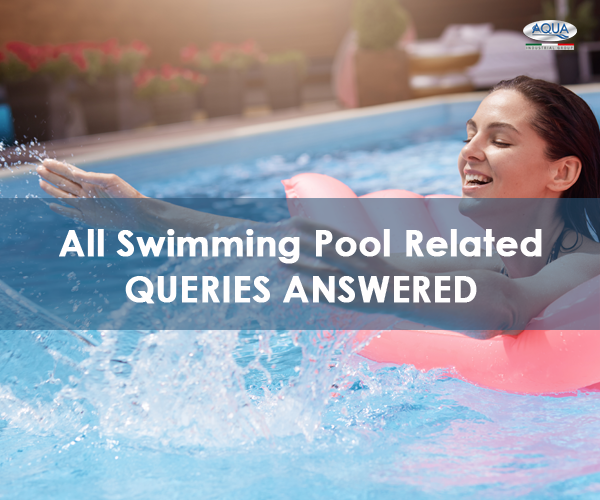When it comes to swimming pool varieties, the choices are as diverse as the ripples on the water’s surface. From natural pools that eschew chlorine entirely to the cozy allure of spools, which seamlessly merge the relaxation of a spa with the fun of an inground pool, the options are vast and captivating.
As we embark on this tour through the world of different types of swimming pools, it’s your chance to explore the possibilities and reflect on what truly suits your swimming pool requirements. Consider how much time, budget, and effort you’re willing to invest in creating your aquatic haven.
Let us walk you through the most common 10 swimming pool styles, each with its unique character and charm. By the end of this journey, you’ll be better equipped to make an informed decision about the pool that will transform your space into a personal oasis. So, let’s dive in and discover your perfect swimming pool match!
#1: In-Ground Concrete Pools
In-ground concrete pools, also known as gunite or shotcrete pools, are a popular choice for homeowners seeking a high degree of customization and long-lasting durability in their swimming pools.
How in-ground concrete pools are constructed?
The construction process involves meticulous planning and execution. It begins with design and excavation, followed by the placement of steel rebar or mesh for structural support. Plumbing and pool electrical equipment are integrated, and then the concrete shell is meticulously crafted using a mixture of concrete and sand sprayed onto the rebar framework. This process, known as gunite or shotcrete application, creates the pool’s shell. After curing, a finish is applied to achieve a smooth and watertight surface. Additionally, pool filtration and equipment systems are installed, and landscaping or decking is added to enhance the pool area.
How in-ground concrete pools stand out from other swimming pool types?
In-ground concrete pools stand out for their customizability, making it possible to match them to unique backyard layouts and preferences. While they do come with a higher initial cost due to the labor-intensive construction and customization options, they offer a remarkable lifespan and require less maintenance than other pool types.
The choice between concrete, fiberglass, and vinyl liner pools should be made considering factors such as budget, maintenance demands, and the desired aesthetic for your outdoor oasis. Concrete pools cater to those who value personalized design and longevity, making them a top choice for those who want a pool built to last and tailored to their specific desires.
#2: Fiberglass Pools
Fiberglass pools come pre-fabricated from the factory, with a single-piece molded fiberglass shell that is simply placed into an excavated hole at the homeowner’s location. The smooth and non-porous gelcoat finish of fiberglass pools reduces the risk of algae growth and requires minimal maintenance.
What are the pros and cons of fiberglass pools?
While they offer a variety of standard sizes and shapes, customization options with the best quality swimming pool equipment are somewhat limited as homeowners must choose from available designs. However, fiberglass pools are a cost-effective choice with a shorter installation timeline compared to in-ground concrete pools.
In contrast to their fiberglass counterparts, in-ground concrete pools are highly customizable, offering limitless design possibilities. Constructed by spraying concrete and sand onto a rebar framework, these pools are renowned for their durability and longevity, although they come with a higher upfront cost. The process includes careful planning, excavation, and the addition of plumbing and pool electrical systems, as well as a finish for a smooth and watertight surface.
Fiberglass pools, on the other hand, are a practical option for those who value efficiency and lower maintenance demands. The choice between these common pool types ultimately depends on your budget, customization preferences, and your willingness to invest in a pool that’s built to last and tailored to your specific desires.
#3: Vinyl-Liner Pools
Vinyl-liner pools are defined by their flexible PVC liner that serves as both the pool’s waterproof barrier and its visible interior surface.
How vinyl-liner pools are constructed?
The construction of these pools involves excavation to create the desired pool shape, the installation of steel or polymer panels to form the structural walls, and the placement of the vinyl liner inside the pool cavity. Plumbing and top quality swimming pool equipment are integrated, and the surrounding area is backfilled and decked for a functional pool space.
Advantages and disadvantages of vinyl-liner pools?
One notable advantage of vinyl-liner pools is their customization potential. Home owners can select from a range of liner patterns and pool sizes and shapes, striking a balance between personalization and affordability. These pools are generally cost-effective compared to in-ground concrete and fiberglass pools, making them an attractive choice for budget-conscious individuals.
However, it’s important to note that vinyl liners have a limited lifespan and may require replacement every 7-15 years, which should be considered in long-term planning. While they offer customization at an affordable price point, the choice between vinyl-liner, fiberglass, and concrete pools depends on factors like budget, design preferences, and the willingness to invest in ongoing maintenance or liner replacements.
#4: Indoor Pools
Indoor pools are an exquisite feature, bringing the joys of swimming and relaxation into any season. These popular pool styles are found in private residences, hotels, fitness centers, and public institutions and are characterized by their year-round usability, regardless of weather conditions. The construction of indoor pools mirrors that of outdoor pools but places a strong emphasis on climate control and architectural integration.
How indoor pools are constructed?
The process starts with meticulous design and planning, addressing not only the pool’s aesthetics but also the vital systems needed for ventilation, heating, and dehumidification. Excavation creates the pool’s shape and depth, but the standout difference is the construction of a structural shell to support the pool’s walls and floor. Plumbing, heating, and pool filtration systems, as well as sophisticated ventilation and dehumidification systems, are crucial to maintaining water quality and creating a comfortable indoor environment. The choice of an interior finish, such as tile, plaster, or vinyl, depends on both practical and aesthetic considerations. Most notably, indoor pools are characterized by their enclosure, consisting of walls, roofs, windows, and doors, ensuring protection from external elements while allowing for natural light and views.
Advantages and disadvantages of indoor pools?
The primary advantages of indoor pools are their year-round utility and the ability to create an architectural masterpiece within a building. However, they come with higher costs due to the need for climate control systems and complex architectural planning. The choice between indoor and outdoor pools largely depends on your climate, budget, and the desire for year-round swimming and architectural integration. Indoor pools transform swimming into an all-season luxury, offering comfort and convenience even when the weather outside is less than favorable.
#5: Infinity Pools
Infinity pools, often referred to as vanishing edge or negative edge pools, are the epitome of luxury and aesthetics in the world of swimming pools. These pools are designed to create a captivating visual illusion, with water appearing to extend endlessly into the horizon. The construction of an infinity pool involves careful consideration of location and design, typically capitalizing on scenic vistas like oceans or landscapes.
What sets infinity pools apart from other swimming pool types?
What sets infinity pools apart is the inclusion of a catch pool situated beneath the primary pool and separated by the defining overflow wall. This wall, often made of reflective materials like glass or tile, creates the illusion as water spills over it. To maintain water levels and ensure the captivating effect, a balance tank is used to recirculate the overflowed water. While the visual appeal is undoubtedly striking, infinity pools are known for their higher construction costs and increased maintenance demands compared to standard pools.
The choice between these two pool types depends on your budget, property location, and your desire for an aquatic masterpiece that complements the natural beauty of its surroundings. Infinity pools are an exquisite choice for those who value the breathtaking aesthetic experience they provide, especially when accompanied by stunning scenic views.
#6: Lap Pools
Lap pools are a dedicated swimmer’s dream, meticulously designed for one primary purpose: swimming laps. These elongated pools are characterized by their long and narrow shape, typically ranging from 25 to 50 feet in length, and 8 to 10 feet in width.
The simplicity of their design, coupled with a more streamlined filtration system, distinguishes lap pools from their multi-purpose counterparts, making them a budget-friendly option for those who prioritize aquatic exercise. The deck or coping around the pool provides a convenient area for swimmers to enter, exit, and take a breather between laps, making them ideal for daily workouts.
What sets lap pools apart is their focus on health and fitness. These pools cater to individuals seeking a dedicated space for regular exercise, without the distractions associated with recreational swimming or diving. They are also well-suited for properties with limited space, offering the opportunity to enjoy the benefits of lap swimming even in urban environments. Lap pools are a practical choice for those who value the advantages of aquatic fitness and a more straightforward pool design.
#7: Plunge Pools
Plunge pools are the epitome of small but sensational when it comes to outdoor water features. These compact pools, intentionally designed to be small and shallow, typically measure around 4 to 7 feet in diameter and 3 to 5 feet in depth.
What are the main purposes of plunge pool types?
The main purpose of these charming pools is to provide a refreshing space for cooling off, relaxation, and even hydrotherapy, making them a popular choice for those who value relaxation and rejuvenation in their outdoor space.
What sets plunge pools apart is their versatility and suitability for smaller properties. Their compact size allows them to fit into backyards with limited outdoor space, making them an ideal choice for those who may not have the room for a standard pool. Additionally, their straightforward design and less complex filtration systems result in lower construction and maintenance costs, adding to their appeal.
So, if you’re looking for an affordable and compact water feature to enhance your outdoor experience, a plunge pool might be the perfect addition to your backyard oasis, offering a delightful space for cooling off, unwinding, and even enjoying the therapeutic benefits of hydrotherapy.
#8: Natural Pools
Natural swimming pools, often referred to as swimming ponds or eco-friendly pools, offer a refreshing departure from the traditional chlorine-treated swimming experience. The defining feature of these pools is their commitment to ecological principles. They consist of two distinct zones: the swimming area and the regeneration zone.
In the swimming area, you enjoy a dip in clear, clean water, while the regeneration zone, home to aquatic plants and beneficial microorganisms, acts as a natural filter. These plants, like water lilies and cattails, thrive in the regeneration zone, absorbing impurities, and releasing oxygen, ensuring the water’s purity without the need for chemical treatments. The result is a pool that not only merges seamlessly with its natural surroundings but also stands as an eco-friendly oasis that respects the environment.
What are the main contrast between natural pools and their conventional counterparts?
The contrast between natural pools and their conventional counterparts couldn’t be more pronounced. Unlike standard pools with their chemical reliance, natural pools use plants and biological filtration to maintain water quality. The natural pool’s design emphasizes an ecological balance, creating an aesthetic harmony with nature.
While the initial construction of natural pools may be more intricate and relatively costly due to the dual-zone system, they are a compelling choice for eco-conscious individuals seeking a chemical-free and sustainable swimming experience.
By opting for a natural pool, you’re not just making a statement about your commitment to the environment, but you’re also immersing yourself in a serene, refreshing, and harmonious aquatic haven that’s as kind to the planet as it is to your well-being.
#9: Saltwater Pools
Saltwater pools, a popular choice among swimming enthusiasts, offer a refreshing departure from traditional chlorine-treated pools. At the heart of a saltwater pool is the salt chlorine generator, a device that converts added salt into chlorine through a process called electrolysis. This ingenious system ensures a steady supply of chlorine, providing consistent water quality without the need for manual dosing. The key advantage of saltwater pools is the feel of the water—swimmers often remark that it’s softer on the skin, gentler on the eyes, and lacks the typical chlorine odor. These pools maintain a lower, consistent level of chlorine, reducing the risk of over-chlorination or under-chlorination that can occur with traditional chlorine pools. While the initial installation costs may be higher due to the salt chlorine generator, long-term savings often materialize through reduced chlorine expenses.
Distinguish between saltwater pools and other common pool designs?
The distinction between saltwater pools and their traditional counterparts lies in the method of chlorine production. Saltwater pools rely on on-site generation, which offers convenience and consistent water quality. Maintenance requirements for chlorine are minimized, though the salt cell and generator system require occasional attention. The choice between a saltwater pool and a standard chlorine pool hinges on individual preferences, budget considerations, and the desire for a pool experience marked by softer water and a reduced chlorine presence. Saltwater pools offer the convenience of automated chlorine generation and a more comfortable swimming environment, making them an attractive choice for those who want to dive into the future of pool maintenance and water quality.
#10: Smart Pools
What truly sets them apart from traditional pools is their ability to self-monitor water quality and adjust automatically, reducing the need for hands-on maintenance. Smart pools also incorporate energy-efficient equipment, from variable-speed pumps to LED lighting, to cut down on operating costs and energy consumption. While the initial investment for a smart pool may be higher, the long-term benefits are substantial, making it a forward-looking choice for those who seek convenience, energy efficiency, and advanced technology in their pool experience.
What are the key differences between smart pools and standard pools?
The key distinction between smart pools and standard pools lies in automation, control, and self-maintenance. Smart pools are designed to be more self-sustaining, continuously monitoring water quality and chemical balance while offering remote customization. The energy-efficient equipment further contributes to long-term cost savings. However, the initial investment can be more significant, reflecting the cost of the automation system and associated technology.
Ultimately, choosing between a smart pool and a traditional pool depends on your budget, technical inclinations, and the desire for a more automated and energy-efficient pool experience. Smart pools represent the next generation of pool technology, promising enhanced convenience, energy savings, and a pool experience tailored to your preferences.
When it comes to creating your dream swimming pool, it’s not just about the design and aesthetics. Equally crucial is the selection of the right swimming pool equipment. From pumps and filters to heaters and cleaners, the importance of choosing the right equipment cannot be overstated. These essential components ensure your pool remains safe, clean, and comfortable, enhancing your overall swimming experience. So, remember to consider swimming pool equipment carefully as you embark on your journey to create the perfect aquatic retreat.
AQUA manufactures and supplies the best pool equipment for our customers in India. We provide a variety of swimming pool-related services right at your door while taking into account the size, shape, and nature of your pool.
CONTACT US NOW
Know more about pool equipment?
Call Us 24/7
Email address
aquawatersystems.italy@gmail.com
contact@aquaindia.in


